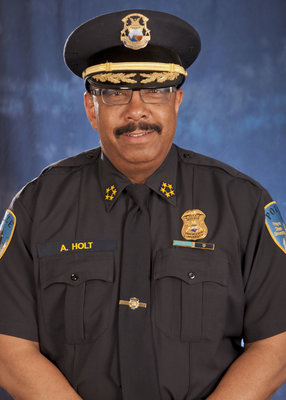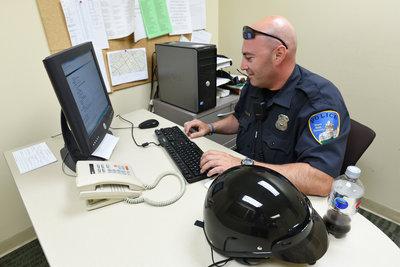Police Staff and Command Program will prepare officers for leadership positions
Law enforcement officers looking to get the necessary training to move up the ranks can apply for a new Police Staff and Command Program offered by Wayne State University.

The program, a collaboration among the WSU Police Department, Office of Executive and Professional Development in Educational Outreach, and Department of Criminal Justice, aims to prepare mid-level police administrators for higher-ranking command staff positions.
Applicants must have the approval of their police chief. The program is approved by the Michigan Commission of Law Enforcement Standards (MCOLES), so agencies can use monies provided by MCOLES for training to pay for the course fee.
"It just makes perfect sense," says Chief Anthony Holt of the Wayne State Police Department. "We have some of the top agents in the state, so it's just natural. I've been sending my officers elsewhere to train, now they can go here. With the type of talent we have, I can see this being a national program where officers from outside the state come to train."
Similar programs exist throughout the state to prepare officers for command positions, but this will be the first program of its kind in metro Detroit. Holt says this means local officers and instructors won't have to travel to Lansing, thereby avoiding hotel and transportation costs associated with some other programs.
Also, "having the program situated within a major metropolitan market allows us to think creatively about collaborative partnerships with the public and private sectors to enhance the learning experience," says criminal justice Associate Chair Brad Smith. "Our goal is for this to be the premier police leadership program in the state."

The curriculum blends traditional and state-of-the-art staff and command courses, providing a best-practices approach to policing. The program combines the practical knowledge of an advisory board of Michigan's top police officials with the research and education skills of the criminal justice department and other units across WSU's campus. "We reached out to high-profile police leaders across the state and asked them what they would like to see in this program. And, we listened to them," Smith says.
Criminal Justice Associate Professor Charles Klahm says it is important for the curriculum to reflect the changing landscape in 21st century policing.
"We worked really hard to identify experts in the field and complement their experiential knowledge and leadership with cutting-edge research knowledge," he says.
The program will be an active learning experience, Smith says.
"They won't just be sitting in a classroom listening to someone talk," he says. "They will be combining the expertise of the university with the expertise of the field. The classes will be taught by professionals who both have the academic and research experience and who have also lived through it."
More details, including registration details and course dates, are available online.
By Jacob Stocking, Educational Outreach communications associate.